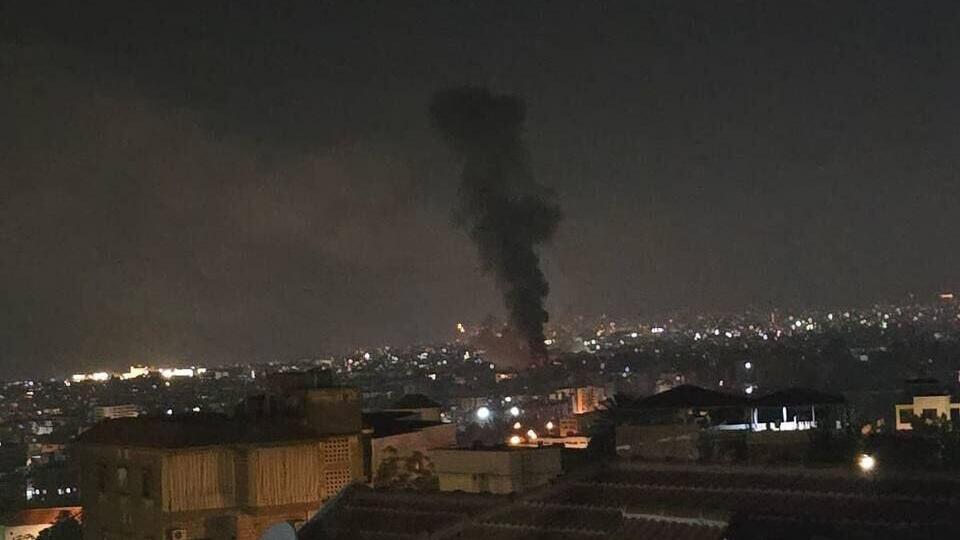Getting your Trinity Audio player ready...
Israeli strikes in Beirut's Dahieh
The IDF struck Hezbollah weapon depots stored beneath civilian buildings in Beirut’s Laylaki neighborhood, the IDF said in a statement early Saturday.
The attack followed a televised announcement by IDF spokesperson Rear Admiral Daniel Hagari, who said that Israel would soon target strategic capabilities, including an Iran-funded anti-ship missile array hidden in the heart of Beirut’s Dahieh district.
Hagari noted that during the 2006 Lebanon War, Hezbollah fired such missiles, one of which hit the Israeli naval vessel INS Hanit, killing four sailors. "Nasrallah himself has threatened strategic and critical facilities in Israel at sea and near the shore," Hagari said, adding that these missiles pose a serious threat to global shipping routes and Israel’s strategic infrastructure.
He warned that the explosion from the strikes could cause the targeted buildings to collapse.
After the IDF struck the suspected sites, large secondary explosions were reported across Beirut, indicating the destruction of weaponry.
Earlier, a source close to Hezbollah told Reuters that contact with the group's leader, Hassan Nasrallah, had been lost. The IDF believes Nasrallah was at least injured and likely killed in the strike on Hezbollah’s central command in Dahieh.
The operation, launched at 6:20 p.m., was described by the IDF as “highly significant, with potential implications for the Middle East.” However, the military is still assessing the results and has not confirmed if other senior Hezbollah commanders were present.
The IDF plans to continue targeting Hezbollah’s capabilities following the strike in Laylaki neighborhood, aimed at crippling the group's resources. “Challenging days lie ahead,” Hagari said, adding that the military will intensify its attacks in a coordinated effort.
Hezbollah video of anti-ship missile launch
(Video: IDF Spokesperson's Unit )
In addition to Iranian-supplied coastal defense missiles, the IDF plans to strike other strategic assets in Beirut that Hezbollah could use for retaliation.
In recent days, the IDF has exposed Hezbollah’s hidden weapon caches in southern Lebanon, and the current strikes aim to reveal how Hezbollah stores strategic weapons and arms in Beirut’s Dahieh, using buildings as shields.
"We will not allow any transfer of weapons to Hezbollah in any way," Hagari emphasized. "We know about these transfers and are thwarting them. IAF aircraft are patrolling the Beirut area, and we are making it clear that hostile flights with weapons will not be allowed to land at Beirut airport. It is a civilian airport and must remain as such."
Hagari also said that the IDF has conducted a readiness assessment under the chief of staff's direction, saying, “The IDF is prepared on all fronts, and we are still evaluating the results of the attack on the command center located in the heart of the Dahieh district. The strike was very precise. We are conducting a situation assessment, and there are no changes in [Home Font Command] guidelines. We will update immediately if anything changes.”
Earlier, IDF Arabic spokesperson Lt. Col. Avichay Adraee urged the immediate evacuation of three buildings in central Dahieh: the Munir Shadid building and adjacent structures in the Laylaki neighborhood, the Shiyit building and nearby structures in the Al Hadath neighborhood and the Al Salam complex in the area.
"If you are near Hezbollah properties, for your safety, you must evacuate the buildings immediately and move 500 meters away," Adraee said.






